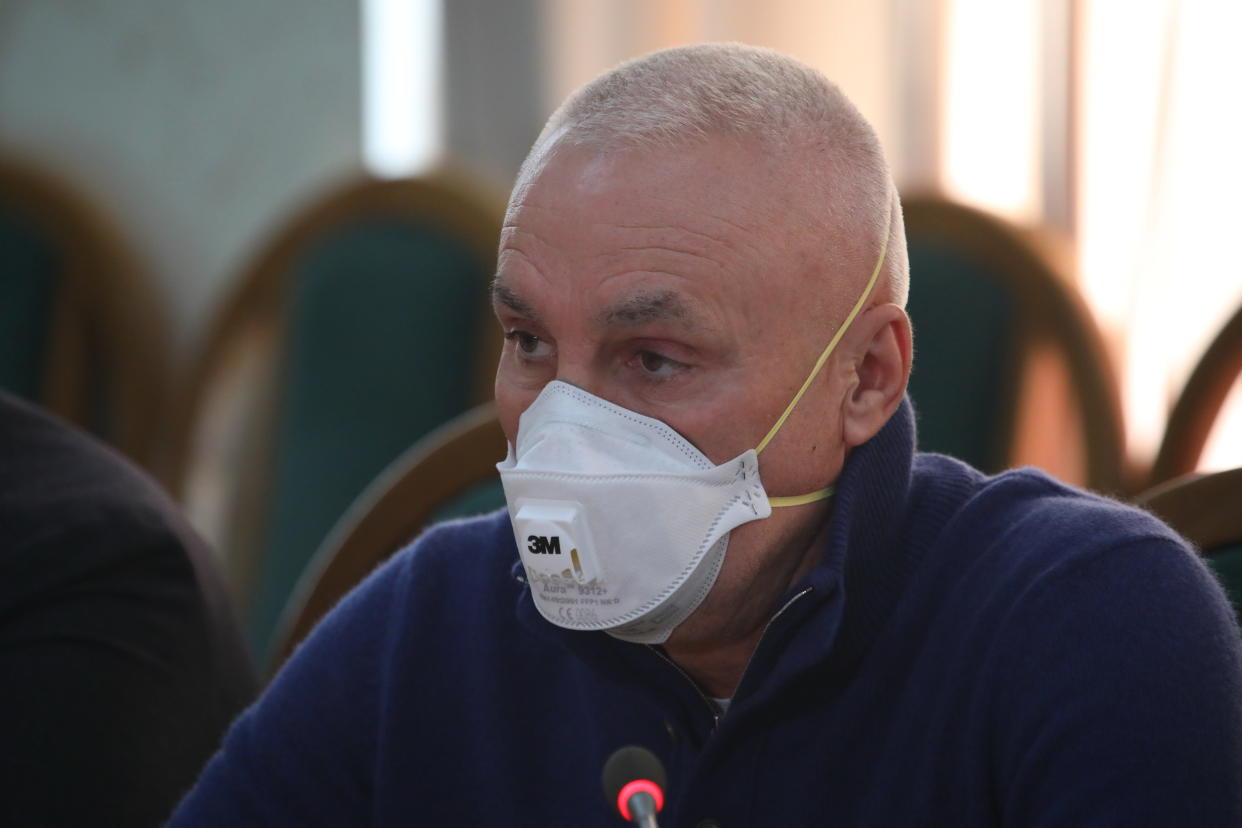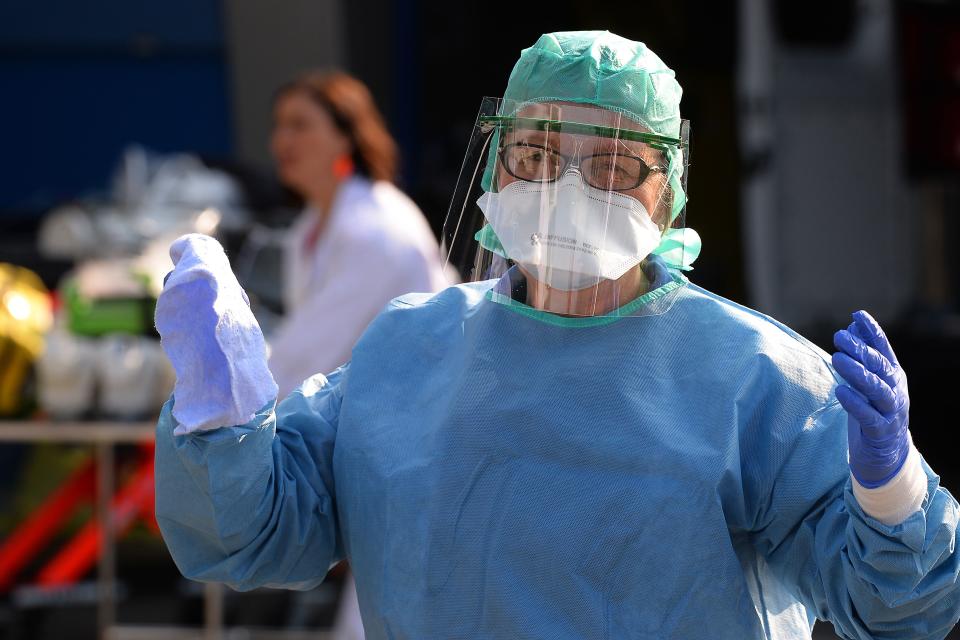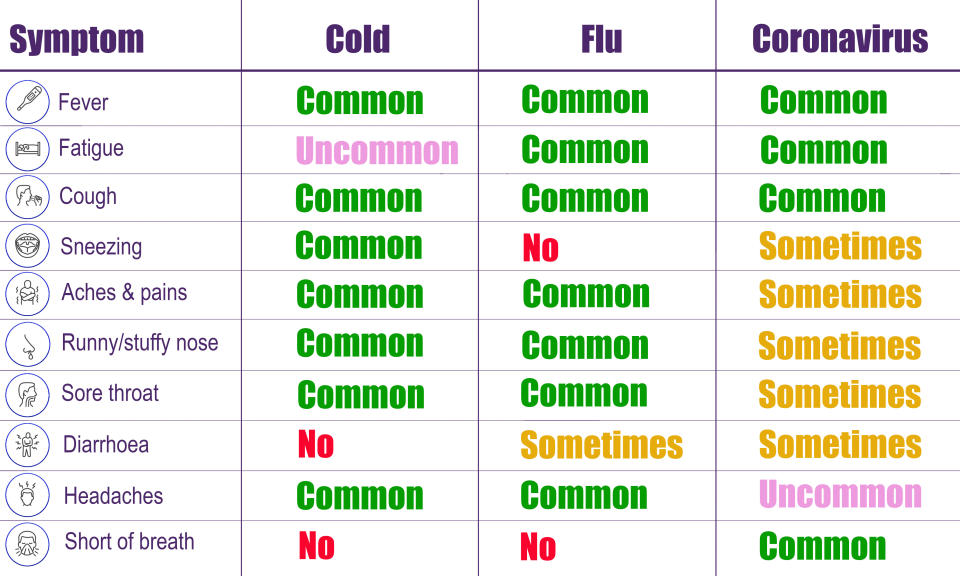Coronavirus: do you need a sick note to get off work if self-isolating?

With the coronavirus putting the UK on “lockdown”, many workers may be wondering if they require a sick note if struck down with the infection.
Boris Johnson enforced draconian measures on Monday evening, forcing all Britons to stay indoors, leaving only to exercise, pick up “essentials” or go to work – if unable to do so from home.
The prime minister had already urged the public to avoid social contact, ditch non-essential travel and work from home, even if not developing the tell-tale fever or cough.
Only hospitalised patients are routinely being tested for the coronavirus in the UK. Anyone with symptoms should stay at home entirely for seven days, while the rest of their household should do so for 14 days.
With thousands of Britons unable to work from home, are sick notes needed if coronavirus symptoms strike?

Latest coronavirus news, updates and advice
Live: Follow all the latest updates from the UK and around the world
Fact-checker: The number of COVID-19 cases in your local area
Explained: Symptoms, latest advice and how it compares to the flu
The coronavirus is thought to have emerged at a seafood and live animal market in the Chinese city Wuhan, capital of Hubei province, at the end of last year.
It has since spread into more than 160 countries across every inhabited continent.
Since the outbreak was identified, more than 398,100 cases have been confirmed, of whom 103,300 have “recovered”, according to John Hopkins University.
Cases have been plateauing in China since the end of February, with Europe now the epicentre of the pandemic.
The UK has had more than 8,100 confirmed cases and 422 deaths.
Globally, the death toll has exceeded 17,400.
Coronavirus: do I need a sick note if self isolating?
As many Britons as possible should work from home.
Exceptions include NHS staff, bank workers and food delivery drivers, to name a few.
These workers must take time off if they develop a fever or cough, test positive for the coronavirus, live with a suspected or confirmed patient, or are told to do so by a doctor.
At-home workers are also entitled to time off if any of the above occur.
When self-isolating, employees and workers must be given Statutory Sick Pay (SSP) from the fourth day of ill health, according to the Advisory, Conciliation and Arbitration Service (Acas).
This amounts to £94.25 ($108.86) a week for up to 28 weeks.
The government is legislating for SSP related to the coronavirus to start from day one of isolation. Once passed, this can be backdated to 13 March.
SSP also applies to people caring for someone in their household who has been told to self-isolate for 14 days.
Employers may choose to pay more, known as contractual sick pay.
If unable to work, the employee should tell their boss as soon as possible, letting them know the reason and when they expect to be back on track.
The employer may ask for proof, with workers being obligated to “follow their usual sickness reporting process”.
Employees can “self-certify” as isolating for the first seven days off work.
This involves following their workplace process, but not having to get a note from a doctor or NHS 111.
Those self-isolating for more than seven days can get an online self-isolation note from the NHS’ website.
It is also available to download on the NHS app.
Patients are encouraged not to see their GP for a note to reduce strain on the NHS and prevent the infection spreading.
“It is absolutely vital we do everything we can to ease the burden on our healthcare professionals, allowing them to spend as much time as possible with those patients that need them most,” said health secretary Matt Hancock.
“Digital-isolation notes will provide reassurance to those self-isolating and their employers while also reducing the pressure on our NHS, so they can continue doing all they can to protect the people of this country and save lives.”
After answering a few questions, an isolation note is emailed to the patient or directly to their employer.
The service can also be used to create a note on behalf of someone else.
The NHS stresses the note is for people who have used its 111 online’s coronavirus checker, have been told by a healthcare professional they have the infection or live with someone with symptoms.
For those who work from home and feel well enough to do so, the NHS recommends asking your employer if you can carry on.
Working from home itself does not require an isolation note.

What is the coronavirus?
The coronavirus is one of seven strains of a class of viruses that are known to infect humans.
Others include the common cold and severe acute respiratory syndrome (Sars), which killed 774 people during its 2002/3 outbreak.
The coronavirus mainly spreads face-to-face via infected droplets that have been coughed or sneezed out.
There is also evidence it may be transmitted in faeces or urine and can survive on surfaces.
Early research suggests four out of five cases are mild, however, pneumonia can come about if the infection spreads to the air sacs in the lungs, causing them to become inflamed and filled with fluid or pus.
The lungs then struggle to draw in air, resulting in reduced oxygen in the bloodstream and a build-up of carbon dioxide.
The coronavirus has no “set” treatment, with most patients’ immune systems fighting off the virus naturally.
In severe cases, hospitalisation may be required if a patient needs “supportive care”.
This may include ventilation while their immune system gets to work.
Hand-washing and social distancing are thought to be the best ways to ward off infection.



